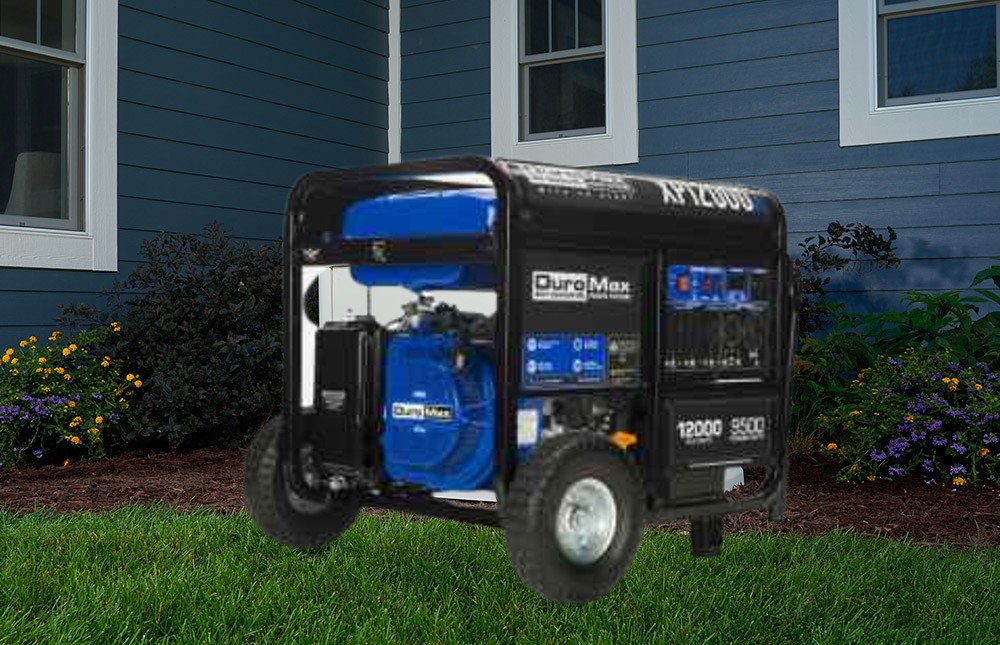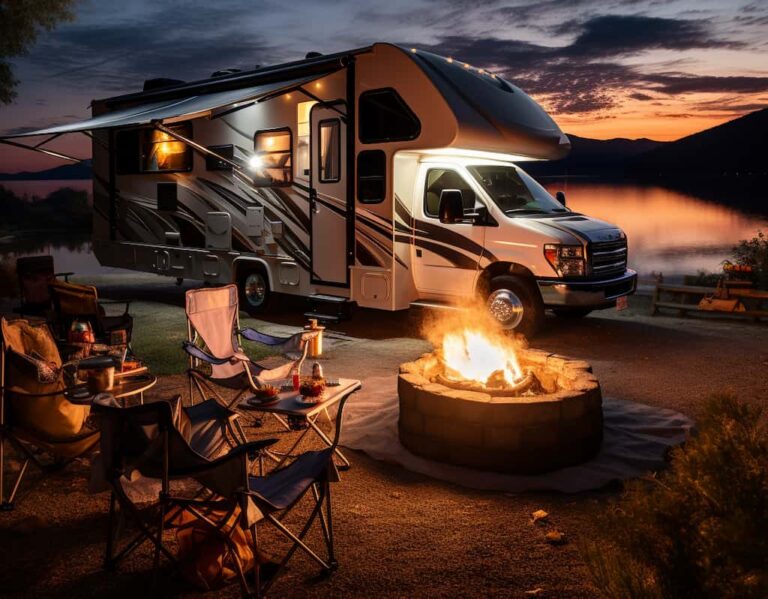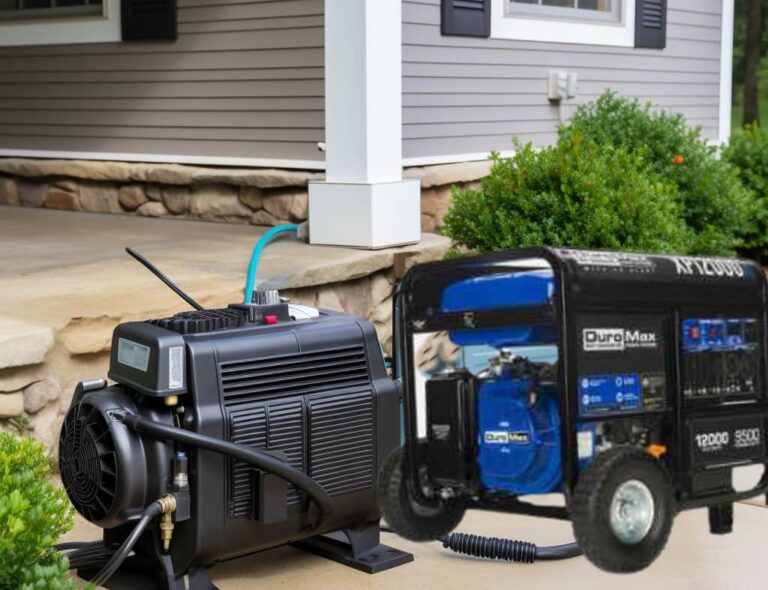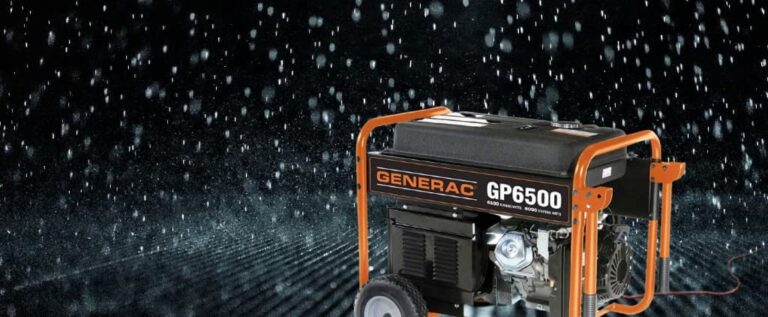Will A 12000 Watt Generator Run A House

Are you weary of being powerless when the lights go out? Are you longing for the comfort and security of a fully functioning domicile, even during a power cut? We explore the world of generators, particularly the mighty 12000-watt generator, and its capability to give total power to your whole house. The short answer is:
Yes, a 12000 watt generator can power most houses successfully, running essential appliances such as refrigerators, air conditioners, and lights. It’s important to assess the power consumption and energy needs of your home to ensure the generator meets your requirements
Learn more, We will show the power usage of crucial appliances, prioritize them during outages, and manage the power load to evade overloading.
But hold on, there’s more! We will also debate considerations for extended use, probe additional power sources for high-energy demand, and direct you in selecting the perfect generator tailored to your home’s power requirements.
Understanding Power Consumption of Household Appliances
Did you recognize that the knowledge power expenditure of household appliances is indispensable when deciding if a 12000 watt generator can power your home?
It is essential to be aware of how much power each appliance in your home consumes so that you can calculate the complete power load. This will assist you in determining if a 12000 watt generator is adequate for your needs.
To comprehend power expenditure, you need to realize that gadgets are graded in watts, which is a gauge of how much power they consume. For example, a refrigerator usually needs approximately 1000 watts, while a microwave can use up to 1200 watts. Home appliances such as air conditioners, water heaters, and washing machines also have distinct power ratings.
To estimate the total power load, add the wattage of all the appliances you plan to run concurrently. Bear in mind that some machines, such as refrigerators and air conditioners, have a higher starting power requirement, which must be considered.
After you have the whole power load, you can compare it to the capacity of the 12000 watt generator.
Comprehending the power expenditure of household appliances is essential for ascertaining if a 12000 watt generator can run your home. Once you have calculated the total power load, you can evaluate your home’s energy requirements and decide if this generator can power your machines adequately.
Assessing Your Home’s Energy Needs
Assessing your home’s energy requirements is akin to creating a blueprint for your power supply. It necessitates attentively reviewing the electricity demands of each machine and ascertaining the overall power needed to run your house efficiently.
To start, make a list of all the items and gadgets that you regularly use. This includes big appliances such as refrigerators, air conditioners, washing machines, and smaller devices like TVs, computers, and lights. Please take note of their power ratings, normally quantified in watts, which can frequently be located on the appliance label or in the user manual.
Proceeding, weigh the length of time each gadget is used and how often they are activated. For instance, a refrigerator may run constantly, while a television may be operated for a few hours in the evening. Multiply the power rating of each appliance by the number of hours it is used to acquire the energy consumption in watt-hours. Total up all the watt-hour values to ascertain the total energy consumption of your home.
By computing power usage for indispensable appliances, you can precisely determine the power supply requirements for your house. This will aid you in deciding if a 12000 watt generator is sufficient to meet your energy needs or if you may necessitate a higher capacity generator.
Calculating Power Usage for Essential Appliances
To correctly ascertain the energy expenditure of your abode, attentively analyze the power requirements of each indispensable appliance, taking into account their utilization period and recurrence.
Kick off by recognizing the wattage rating of each appliance, which is usually found on a label or in the proprietor’s manual. This rating discloses the power the appliance consumes when running at full capacity.
Subsequently, gauge the average number of hours each appliance employs daily. Multiply the wattage rating by the usage hours to calculate the daily energy expenditure for each appliance.
Accrue the energy expenditure of all important appliances to get the total power utilization of your home. Bear in mind that appliances with motors or compressors, like refrigerators and air conditioners, may have a higher initial power surge when starting up.
It is also essential to reflect on any extra equipment you wish to run concurrently during a power outage. By prioritizing your appliances in relation to their power requirements, you can ensure that your portable generator can suitably match your home’s energy needs during times of emergency.
Learn More: Preventing Water In Your Generator’s Fuel Tank
Prioritizing Appliances during Power Outages
When the power goes out, choosing which appliances must be used first is essential. Start by recognizing the indispensable appliances you can’t do without, like fridges, medical equipment, or warming systems. These appliances should be prioritized as they directly affect your well-being and safety.
Subsequently, consider the appliances that provide comfort and convenience, such as air conditioning, heating, or cooking devices. Though these are essential, they can be temporarily substituted or bypassed temporarily.
Eventually, assess the gadgets that aren’t necessary for survival or comfort, like entertainment systems or gaming consoles. These can be fully powered off during a power outage to save energy.
By allocating your appliances during a power outage, you can ensure you make the most effective use of the available power supply. This will help you stretch your generator’s run time and decrease the risk of overloading it.
In the following section, we’ll investigate the capacity of a 12000-watt generator and how it can fulfill the power requirements of your prioritized appliances.
The Capacity of a 12000-Watt Generator
If you’ve been curious about the power capacity of a 12000-watt generator, let us explore the topic!
Such a generator is equipped with an impressive capability, which allows it to power a wide variety of electrical devices and appliances in your home. This generator produces 12000 watts of energy, which is enough to energize several necessary systems at the same time. This level of energy output is ideal for most households and can even handle high-demand machines like refrigerators, air conditioners, and some heavier power tools.
When it comes to running your home with a 12000 w generator, it is essential to prioritize which gadgets you want to power during a power outage. To successfully manage the generator’s capacity, it is important to understand the power requirements of each device. Start by recognizing the essential systems you have to keep functioning, such as lighting, heating, and communication devices. Once those systems are taken care of, you may then slowly add other machines, considering their power needs and significance.
Shifting to the next section about utilizing essential systems with a 12000-watt generator, it is essential to grasp the specific power requirements of each system. This way, you can be certain that your generator can manage the load and provide a steady electricity supply during unexpected outages.
Running Essential Systems with a 12000-Watt Generator
Operating essential systems with a 12000-watt generator is similar to having an invincible protector who easily sustains your household when power outages occur. Its extraordinary capacity makes it an ideal choice for powering the most fundamental systems in your residence, giving you peace of mind and safety.
The 12000-watt generator can supply the power needed to run your HVAC unit, keeping your home comfortable no matter the temperature outside. Your refrigerator, which is indispensable in keeping perishables fresh, can also be powered by the generator, allowing you to have a constant supply of food during blackouts.
The generator can facilitate your lighting system, enabling you to move around your house without having to grope in the dark. It can keep your communication devices, such as phones and modems, connected during emergencies, allowing you to stay informed.
Properly managing the power load is essential to prevent the generator from being overloaded. By understanding the power requirements of each system and evenly distributing the load, you can reduce the chances of overloading the generator and optimize its performance.
Let’s explore how to effectively manage power load and avoid overloading the generator.
Managing Power Load to Avoid Overloading the Generator
To effectively manage power load and avoid overloading, it’s necessary to carefully parcel out the electricity needed for essential systems. This guarantees a consistent and uninterrupted flow of energy throughout the home.
Begin by pinpointing the essential systems that need power, such as the refrigerator, heating and cooling systems, and lighting. Estimate the power demands of each system and prioritize them based on their importance.
Next, take into account the power capacity of your 12000-watt generator. Split the total power requirements of your essential systems among the available wattage. Remember that some appliances, like refrigerators and air conditioners, have a larger power requirement during startup. To make up for this, make sure to provide some extra capacity in your power allocation.
It’s essential to share the load across the generator’s circuits to prevent overloading. Connect different essential systems to different circuits, making certain that each circuit doesn’t exceed its maximum load capacity. Utilize extension cords and power strips with integrated overload protection to divide the power evenly.
Don’t forget to periodically monitor the power usage to make sure that the load stays within the generator’s capacity. If any changes or signs of overload are noticed, adjust the distribution as needed.
Considering the extended use of a 12000-watt generator, it’s indispensable to apply correct maintenance and fuel management practices to ensure its durability and effective operation.
Considerations for Extended Use of a 12000-Watt Generator
When utilizing a 12000-watt generator for an extended spell, securing its lifespan and proficiency through appropriate upkeep and fuel administration rehearses is essential.
Frequently examine the generator for any indications of mileage, such as loose connections, damaged wires, or oil leaks. Clean the air filters and cooling fin to prevent overheating and maximize airflow. Also, check the oil level and change it as recommended by the manufacturer to ensure smooth operation.
Fuel management is equally significant to keep the generator running smoothly. Use fresh, clean fuel and store it properly in a well-ventilated area away from any potential ignition sources. It’s recommended to add a fuel stabilizer to prevent fuel degradation over time. Monitor the fuel level regularly and refill as needed to prevent sudden shutdowns.
To optimize the efficiency of your 12000-watt generator, consider implementing energy-saving practices in your home. Use energy-efficient appliances and turn off any unnecessary lights or equipment. Insulate your home properly to reduce energy loss. These measures will help reduce the overall power demand on the generator.
The following section will explore additional power sources for high-energy demand in a house, ensuring that you have a backup plan if the generator can’t handle the load.
Additional Power Sources for High-Energy Demand in a House
If you’re seeking to meet the high-energy demands in your domicile, you may want to explore the option of additional power sources. While a 12,000-watt generator can manage a substantial load, there may be situations where you demand even more power.
An option one may want to consider is investing in solar panels. Solar energy is an unsoiled and replenishable source of power that can help reduce your electricity expenditure. By tapping into the sun’s energy, you may be able to decrease your trust in the generator and conserve on fuel costs.
Additionally, you might want to install a wind turbine. Wind power is another sustainable option that may generate electricity for your abode. It is important to note, though, that wind turbines necessitate distinct wind conditions to operate adeptly.
Lastly, you may desire to contemplate the feasibility of connecting your home to the electrical grid. This allows you to draw power from the grid when needed and utilize the generator as a backup during power outages.
By examining these extra power sources, you can make sure that your high-energy demands are met in a more sustainable and productive way. When opting for the suitable generator for your home’s power requirements, it’s imperative to take into account factors such as load capacity, fuel efficiency, and noise level.
Choosing the Right Generator for Your Home’s Power Requirements
Exploring substitute power sources for your high-energy requirements? Look no deeper than selecting the perfect generator for your home’s power needs.
When it comes to energizing your house, it’s essential to pick the correct generator that can manage the energy demand effectively. A 12000 watt generator is a considerable energy source that can potentially fulfill the requirements of your entire household.
Before settling on a choice, it’s critical to evaluate your power requirements precisely. Contemplate the appliances and gadgets you must power during an outage. Estimate their joined wattage to decide if a 12000 watt generator is sufficient.
This generator generally has the capacity to run fundamental appliances like refrigerators, air conditioners, and lights concurrently.
It’s important to consider the fuel type and runtime of the generator. Propane, gasoline, and diesel are general options, each with its advantages and restrictions. Ascertain which fuel source coordinates with your needs and accessibility. Additionally, check the runtime of the generator to guarantee it can give power for an extended period without refueling.
When choosing a generator, it’s critical to seek advice from specialists and read customer reviews to comprehend the dependability and toughness of various models. Pick a generator that meets your power requirements, is simple to maintain, and has a well-known company behind it.
By investing in the right generator, you can guarantee continuous power supply during crises and create a sense of belonging and security for your family.
Frequently Asked Questions
Can a 12000 watt generator power my entire house during a power outage?
A 12000 watt generator can supply the energy needed to maintain operations in your home during a power outage. Think of it as a powerhouse, capable of meeting the electricity demands of every appliance and system within your residence. With its high wattage, this generator should be able to handle the power requirements of your entire house, allowing you to remain worry-free during unexpected outages.
How long can a 12000 watt generator run continuously without overheating?
A 12000 watt generator can routinely function for 8-10 hours without overheating, depending on the model and environment. It’s essential to consider load capacity, ambient temperature, and maintenance intervals. Monitoring the generator’s temperature and providing adequate ventilation can help prevent overheating. Additionally, adhering to the manufacturer’s instructions for maintenance and servicing will help maintain the generator’s longevity and ward off overheating issues.
Can a 12000 watt generator handle the power needs of an electric water heater?
No, a 12000 watt generator can’t handle the power requirement of an electric water heater. The average electric water heater needs around 4500 watts, which exceeds the wattage of the generator. Although the generator may have higher wattage, it isn’t fitted to handle the regular intensive load of an electric water heater. Using it for such a purpose would risk damaging the generator and potentially causing a power outage.
What are the noise levels of a 12000 watt generator?
The sound production of a 12000 watt generator may differ based on the type and manufacturer. Generally, higher wattage machines create more noise.
This type of generator can produce between 70 to 80 decibels of sound, which is comparable to the sound of a vacuum cleaner or a busy street.
It is essential to note that certain models of generators are equipped with noise-reducing features like soundproofing or silencers, which can help lessen the noise.
Can a 12000 watt generator power sensitive electronics like computers and televisions without causing damage?
Yes, a 12000 watt generator can effectively power sensitive electronics such as computers and televisions without causing damage. It’s outfitted with modern technology that supplies steady and clean energy, removing the possibility of voltage spikes or variations that can harm these devices. Additionally, it has integral protective components such as voltage modulation and surge insulation, ensuring safe and dependable operation for your delicate electronics. Rest assured, your electronics will be well cared for with this generator.
Conclusion
Assessing the power consumption and energy needs of a home, a 12000-watt generator will run most houses successfully. Thanks to its substantial capacity, this generator can simultaneously power important appliances such as refrigerators, air conditioners, and lights.
Notably, an American home typically uses around 9000-12000 watts of electricity during peak hours. By investing in a 12000-watt generator, you can guarantee a steady supply of power during outages and secure the smooth operation of your home.




